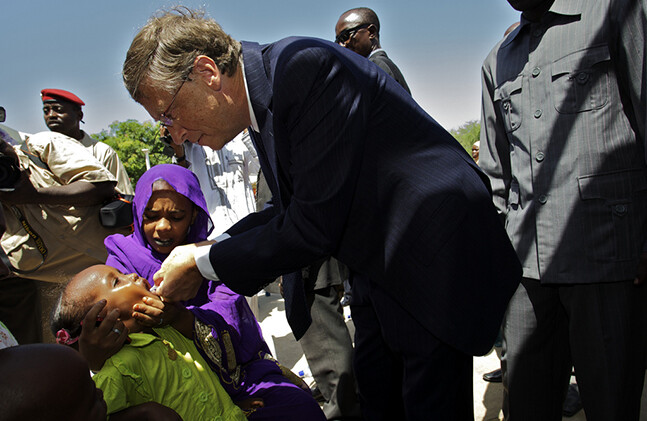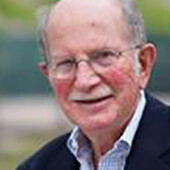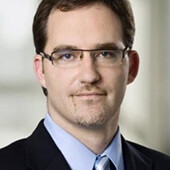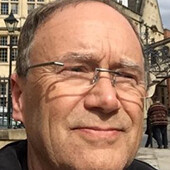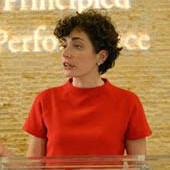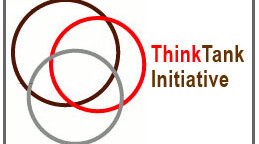This month on "Impact," we're taking a close look at a huge issue--legacy. In this case, we're examining how it relates to contemporary philanthropy and the social sector in general. Specifically, we examine the $37-billion Gates Foundation's dual legacy in promoting global health, and in shaping the social sector at large.
JULIA TAYLOR KENNEDY: You're listening to Impact from the Carnegie Council. I'm Julia Taylor Kennedy.
Each episode, we explore a topic in global business ethics. This time it's legacy.
One of the highest-profile examples of legacy is the $37 billion dollar Bill and Melinda Gates Foundation, helmed by the Gates couple and Warren Buffet. Its mandate? To eradicate extreme poverty and poor health in developing countries, and to fix the U.S. education system.
The foundation's legacy just got a pretty big, if under-reported, boost.
Now, even though we all know that some of the world's biggest problems are poverty and hunger, shockingly few journalists cover global health. That's why I reached out to one of the few and the proud to tell us about the Gates Foundation's recent breakthrough.
TOM PAULSON: I'm Tom Paulson, executive editor and founder of Humanosphere.org, where we cover global health, poverty, and inequity issues.
JULIA TAYLOR KENNEDY: Basically, Humanosphere is Paulson and another writer explaining the latest developments in global health.
TOM PAULSON: We have a large battalion of freelance writers, but it's mostly a small operation—two white guys named Tom, not very diverse.
JULIA TAYLOR KENNEDY: Maybe not, but Paulson has a lot going for him, namely, 30 years experience and laser-focused ambition.
TOM PAULSON: The mission of Humanosphere is to get people to pay attention to the fight against poverty and inequity. Most media stories are kind of noble Westerners helping poor people. They're kind of cheerleady, and they don't really dig very deep. So we think this is way more interesting than it looks. We're trying to have fun with it, be smart-ass sometimes, but basically try and get people to pay more attention to the fight against global poverty.
JULIA TAYLOR KENNEDY: I can say the tone is pretty refreshing, and worth checking out. Humanosphere has really become a go-to for readers who work in, or care deeply about, global health.
Anyway, back to our story.
It begins in 2001, when the nascent Bill and Melinda Gates Foundation wagered that by funding the development of a bacterial meningitis vaccine, they could eradicate the scourge that gave a nickname to an entire region of Africa: the meningitis belt.
TOM PAULSON: The Sahel, from Gambia on the west, all the way to the part of Ethiopia at the easternmost end of the continent, these meningitis outbreaks would explode on an unpredictable seasonal basis and tens of thousands of people could die.
JULIA TAYLOR KENNEDY: Hundreds of thousands of people would be infected.
TOM PAULSON: Many of the survivors would end up disabled—blind or deaf—because meningitis just inflames the brain and the spinal cord.
JULIA TAYLOR KENNEDY: Now, remember how I said the Gates Foundation took on the "meningitis belt?" There are more players in this drama, of course. One of them is a Seattle-based global health organization called PATH.
PATH and the Gates Foundation are really closely linked—more on that later—but for now, let's just say PATH brought the meningitis crisis to the attention of the Gates Foundation.
TOM PAULSON: PATH knew there was a solution to this huge, deadly epidemic that would happen on a regular basis across the Sahel.
JULIA TAYLOR KENNEDY: Now, there are meningitis vaccines that were developed for other strains common in developed countries. But there wasn't a vaccine for this particular strain breaking out in the Sahel.
TOM PAULSON: The drug industry, because it needs to make a profit, had no interest in developing a vaccine for this region because these were all mostly poor countries and the drug industry looked at it and said we can't make money doing this.
JULIA TAYLOR KENNEDY: A market failure—just the kind that Bill Gates has said he wants to address in global health. Gates, the World Health Organization, and other partners got behind PATH's efforts to develop a new meningitis vaccine that was both profitable for the company developing it, and affordable for the families taking it.
TOM PAULSON: There was actually some research—experimental vaccines that had been shelved because industry didn't want to develop them at National Institutes of Health—and they put it all together and convinced an Indian drug manufacturer that they could make money, even if they could only make a vaccine that could only cost $0.50 or so a dose.
Anyway, and so through this collaboration of just looking and trying to find all the right interests and combining the interests of both industry and a public health mission, they were able to support the development of this vaccine and the Gates Foundation funded this.
JULIA TAYLOR KENNEDY: It took nine years to develop and launch the bacterial meningitis vaccine. But they did it.
TOM PAULSON: In 2010 they rolled it out. They vaccinated more than 200 million people and, as of today, there's been not one case of meningitis across the Sahel.
JULIA TAYLOR KENNEDY: Wait . . . let's hear that again.
TOM PAULSON: . . . there's been not one case of meningitis across the Sahel. Hundreds of millions of people, they're free from these epidemics.
JULIA TAYLOR KENNEDY: Plus, the World Health Organization announced this year that the vaccine will now be included in routine immunizations all over the region. Basically, it's the ideal win. Gates backs a vaccine development project. It's developed, it works, and within 15 years it's become standardized.
PATH estimates the vaccine will have prevented about a million cases of bacterial meningitis and 150,000 deaths from the disease, thanks to collaboration with a non-profit, an international organization, African governments, and an Indian pharmaceutical company.
And the Gates Foundation backed the whole thing. Basically, the meningitis vaccine could be the poster child for the work Bill and Melinda Gates have told reporters they set out to do when they started their foundation.
But, of course, the Gates Foundation has taken a lot of other bets that saw less thrilling returns. It's to be expected. Global poverty and illness are among the greatest challenges that face society. And in the process of bringing an entrepreneurial spirit to philanthropy, Gates is bound to notch up a mix of hits and misses.
Bill Gates has said publicly he hates the notion of legacy. But, like it or not, the foundation's work is now a big part of the legacy Gates will leave.
For those of you who have listened to other episodes of Impact, you'll have gleaned that we're constantly asking questions about the consequences—intended or not—of one person or organization on the well-being of others.
And someone's legacy is, in essence, the long-run impact of their life. Can an individual entrepreneur even out the legacy balance sheet by using the capital accumulated from possibly ruthless behavior to solve social problems?
It's a question that's been asked of many philanthropic CEOs, and Bill Gates is no exception. Whether or not he spends all of his wealth while he's still alive, as he intends to, he'll still be remembered for his second act as philanthropist as well as his first act as tech CEO. In some ways, Gates' transition from Microsoft CEO to philanthropist is a really traditional one.
AMBER KIWAN: It's true.
JULIA TAYLOR KENNEDY: I'm not alone in the booth today. Waiting very patiently with me here is another member of our production team, Amber Kiwan. Welcome to the mic.
AMBER KIWAN: Thank you.
JULIA TAYLOR KENNEDY: Amber is one of the main reasons we are able to produce one of these podcasts every single month. And she took an even bigger part in this episode, researching the history of philanthropy for us.
So, Amber, how did you find out what is old and what's new about Bill Gates' approach to philanthropy?
AMBER KIWAN: Well, I called up a historian.
JULIA TAYLOR KENNEDY: I guess that makes sense.
AMBER KIWAN: And I found a really great one, who's been studying philanthropy for 40 years. He told me Bill Gates is far from the first businessman looking to bring business acumen to the social sector.
STANLEY KATZ: If you look at the longer history of philanthropic foundations, and that kind of philanthropy in the United States, its origins are almost exactly 100 years ago now.
Stanley Katz. I am a professor in the Woodrow Wilson School of Public and International Affairs at Princeton University.
AMBER KIWAN: Katz found that Carnegie, Rockefeller, and Ford—the big names that are still on foundations today—developed the idea for foundations over time. [Editor's note: Andrew Carnegie founded our organization, now known as Carnegie Council for Ethics in International Affairs, with an endowment in 1914.]
STANLEY KATZ: Andrew Carnegie and John D. Rockefeller, Sr., had been, through all of their lives, quite charitable.
AMBER KIWAN: They'd encounter someone in trouble, and they'd give them a small donation to get them back on their feet. Or, sometimes, they'd give money to a larger charitable organization.
STANLEY KATZ: They came to the realization that that sort of retail philanthropy, which they call charity, was not likely to be very effective in the long run because it wasn't addressing the core problems, the underlying problems. What, therefore, they wanted to do was to identify, to root out, those underlying problems, and they called that philanthropy, as opposed to charity.
JULIA TAYLOR KENNEDY: Sounds pretty straightforward.
AMBER KIWAN: But at the time, it was revolutionary. If you think about global development as watering a garden—
JULIA TAYLOR KENNEDY: Okay, that sounds cheesy.
AMBER KIWAN: Just stick with me here. If you think about global development like watering a garden, it was like taking a dripping hose with no power behind it—and then suddenly turning on a faucet that would release a powerful stream of water that could really make that hose effective.
In other words, they were scaling up their investments—just as Ford had done with Model T's, and Carnegie had done with steel.
STANLEY KATZ: The vehicle that they invented, literally invented, in order to do that was what we now call the private philanthropic foundation.
That is a perpetuity managed by a board of trustees with a professional staff that establishes a program to identify problems and to address problems. And in those days its primary mechanism for operation was research, particularly research done in universities.
What went along with that is also a very patient long-term attitude. The early philanthropists were in no hurry to solve problems that they knew were centuries old.
They expected it would take a long time to do that. They were prepared to invest money that didn't always succeed. That was the basis on which they proceeded.
AMBER KIWAN: And so, for these philanthropists, starting a centuries-long legacy of fighting difficult problems, without completely solving them, made sense.
After all, these are complex problems without clear answers that would take a long time to resolve. But on the other hand, there's a concern that accepting slow progress leads to a certain complacency.
STANLEY KATZ: Very often those grants did fail. Very often also—this was complained about—the researchers who got the funds, in effect hijacked the funds.
That is, they went off and they did the kind of research that they were personally committed to doing, and not necessarily doing it in a way that the funder, the foundation, would have intended or would have wanted.
AMBER KIWAN: According to Katz, this is what Bill Gates and other contemporary philanthropists react to. Just because you have a hose with a steady stream doesn't mean it's pointed in the right direction.
JULIA TAYLOR KENNEDY: So, at the risk of belaboring a metaphor, would you say Gates is looking to make sure the water he's using keeps plants growing?
AMBER KIWAN: Exactly.
STANLEY KATZ: The newer philanthropists are impatient, not patient. They want results, and they want specific results. They want them done to order, as it were. They want to be able to both reward and punish the people to whom they make grants on the basis of how successful they are in succeeding at the goals agreed upon with the philanthropist.
That's what I would call strategic philanthropy. The idea is that if the donees do not meet their goals in a timely and demonstrable fashion, they should be cut off.
JULIA TAYLOR KENNEDY: So I think I'm sensing some skepticism from Katz about strategic philanthropy?
AMBER KIWAN: I'd say so.
STANLEY KATZ: They're trying to adapt the techniques of venture capitalists. They wanted to make bets in the same way that venture capitalists did. They moved that model from business to philanthropy. That, I think, is the origin of the thing.
JULIA TAYLOR KENNEDY: Okay, now let me interject here.
AMBER KIWAN: Okay.
JULIA TAYLOR KENNEDY: Sit tight again, Amber, we will come back to you and Katz, I promise. But first, I want to dig into this idea of strategic philanthropy and let someone from the Gates Foundation shed light on how they view their role as philanthropists.
DARIN MCKEEVER: I do think a clear goal can motivate and it can align. When a goal is not clear, it can often lead to wasted resources and attention.
My name is Darin McKeever and I work for the Bill and Melinda Gates Foundation where I am a deputy director within the global policy and advocacy division.
JULIA TAYLOR KENNEDY: With better data collection, thanks to technological solutions, it's getting easier to measure whether organizations are able to meet the goals the Gates Foundation sets.
DARIN MCKEEVER: I think that overall the possibility of being able to evaluate our work alongside others has been increasing in this world. And I think that's, overall, a good thing.
JULIA TAYLOR KENNEDY: Think back to that great success of the meningitis vaccine. PATH had a really clear goal: to prevent outbreaks in the meningitis belt. And as they administered the vaccine, the organization was able to track exactly where it was administered, who the vaccine worked for, and meet their goal.
STEVE DAVIS: We operate as a very sophisticated, large business. We have lots of projects, manage a lot of intellectual property. Almost every project has at least one or more industry partnerships and deals. And, we are very committed to getting things to scale.
JULIA TAYLOR KENNEDY: With a $320 million budget, Steve Davis, PATH's CEO, has the opportunity to scale up solutions. Plus, he comes from a business background. He worked closely with Bill Gates on a digital media firm called Corbis. And PATH's relationship with the Gates Foundation is really close.
STEVE DAVIS: They fund today about 50 percent of our work. We are one of their largest, and certainly longest partners in the innovation side.
JULIA TAYLOR KENNEDY: Davis isn't the first PATH CEO to have a tight working relationship with Gates.
STEVE DAVIS: PATH was one of the places that Bill and his father, Bill Sr., came and visited when Bill was just beginning to think about philanthropy, and they saw the nature of the innovation here. So from that, it's led to a whole range of projects, for which we have been a critical anchor partner of the foundation.
JULIA TAYLOR KENNEDY: In some ways, PATH is an ideal partner for Gates Foundation. It's got a similar focus on technological solutions—to develop and distribute vaccines and devices to cure disease in the developing world. They are both based in Seattle, and the two organizations have worked closely together since Gates Foundation's inception.
Some say that one of PATH's founders heavily influenced the mission of Gates Foundation. PATH is, in a way, an ideal partner for this new breed of strategic philanthropy.
STEVE DAVIS: I think the reliance on data and metrics has been something that we've tried to push harder here at PATH, and thinking about professional development with that intentionality that often business does.
JULIA TAYLOR KENNEDY: Part of that intentionality is choosing metrics carefully.
STEVE DAVIS: The first fundamental issue is what do we measure to understand the kind of social impact that we make. Of course, the movement is saying just measuring activity isn't enough anymore.
JULIA TAYLOR KENNEDY: Think of Amber's example, the garden hose. It's not enough just to turn on the faucet.
STEVE DAVIS: We need to understand what that activity is actually resulting in. That's not just in an output, but it's the outcome.
JULIA TAYLOR KENNEDY: Are the plants flourishing? And, of course, there is such a thing as over-watering.
STEVE DAVIS: I actually have pushed back on a couple of grants, where I felt like the amount of measurement and the amount of focus on that measurement and evaluation overwhelmed the amount of focus on the program itself. Sometimes, we have to do it anyway. There's a lot of upside, right? We hopefully will get to more effective outcomes.
We'll drive for efficiencies, hopefully, if we know what we're measuring, rather than doing random acts of kindness. We will enable people to get more satisfaction with their philanthropy if they see it more as an investment and there's a mentality there.
JULIA TAYLOR KENNEDY: Of course, not all organizations are in a position to say "no" to funding. And this focus on metrics can lead to skewed outcomes.
Humanosphere blogger Tom Paulson uses an old joke to explain the effect.
TOM PAULSON: There's a drunk guy crawling around underneath a streetlight at night and another guy comes upon him and says, "What are you doing?"
The drunk guy says, "I lost my keys."
So the guy starts looking around helping him, crawling also around the streetlight where the light is, looking, trying to find the keys and finally, they can't find them. So the guy who's trying to help him asked the drunk,"Well, where did you drop 'em?"
And the drunk points across the street to a dark alley and says,"Over there."
The guy says,"What the hell are we looking here for?"
The drunk says, "Because the light's better."
JULIA TAYLOR KENNEDY: Good joke. What does it have to do, though, with strategic philanthropy?
TOM PAULSON: Many of the most fundamental problems in poverty and global health and all of these things—it's not clear, because they are political, or they might be commercial, structural problems, or so forth. We need to make sure that we are not just focusing on projects that have impacts we can measure and we are ignoring more fundamental problems because they have no impact measures.
JULIA TAYLOR KENNEDY: To illustrate how metrics can skew priorities, Paulson brings up another project the Gates Foundation is funding.
TOM PAULSON: Access to clean water is obviously a huge need worldwide and they need new improvements.
JULIA TAYLOR KENNEDY: So, the Gates Foundation is backing another bet: a new kind of toilet.
TOM PAULSON: They've got these fancy toilets, dealing with the sanitation issue and they like those kind of things.
JULIA TAYLOR KENNEDY: The idea is to transform a toilet into a sanitation device, so toilet water can become a source of drinking water for cheap.
TOM PAULSON: There was a story recently about Bill Gates drinking this water that had been created from sewage by this project they'd funded.
JULIA TAYLOR KENNEDY: But, of course, there's more to selling drinkable toilet water than just inventing the toilet that works.
TOM PAULSON: What they don't like doing is dealing with government politics; difficult, complicated land use issues; environmental issues involved in trying to improve access to water for poor people; etc. That's too messy. So I would say they still haven't really gone in with both feet into the water problem.
JULIA TAYLOR KENNEDY: Paulson thinks Gates is staying in his comfort zone with things he can measure in the light. Just like the man from the joke who avoids fumbling around in the dark to find his keys.
TOM PAULSON: Bill Gates loves invention. He loves technology. That's clear. So he's going to tend to support those kinds of approaches. It is still pretty much, I would say, a lot of what the foundation considers its main focus is to find these kinds of solutions. And that goes back to who Bill Gates is, certainly.
I think that has been very successful within the limits of what you can do with technology. I mean, I could go on and on about particular projects or things that they have supported that have made a huge difference and saved a lot of lives.
On the flip side, a lot of issues in poverty and global health and inequity are not going to be solved by technology.
JULIA TAYLOR KENNEDY: We started this episode talking about the intertwined nature of philanthropy and legacy. So what does all of this tell us about Gates' legacy?
As I see it, there are two legacies. The first legacy is his work to meet very ambitious goals to reduce global poverty, improve global health, and fix U.S. education. I know we haven't even touched his goal in the U.S. to fix public education because that would take up its own separate podcast.
But on the global front, as for Gates' dedication and zeal to solve these thorny issues, his personal legacy seems to be shaping up pretty well.
TOM PAULSON: I have been fairly critical of them on some things. But I would say, generally speaking, they are a force for good.
JULIA TAYLOR KENNEDY: PATH CEO Steve Davis has watched Bill Gates develop his passion for global health.
STEVE DAVIS: I think Bill's also matured in this world. I can remember, in the early days, talking to him about it. I had a lot more experience in philanthropy than he did.
Partly, I was chairing the United Way and a variety of things. I had run nonprofits. He would admit that he was pretty naive about the whole thing.
It's been extraordinary to watch. To see where he's come in those 20 years is pretty amazing—or 25 years since we first were working together. That he's gone from, "Look, this is something I'll do later in my life, and I will focus on it when I retire," to making this really his full-time work.
Now, he's very sophisticated about funding models. He's sophisticated about who the players are. I would say it's just been nothing but a delight to see him and his organization mature.
Do I agree with him on everything? Of course not. Do PATH and the foundation ever bump heads? Absolutely, but overall, I think it's been an extraordinary gift for the world.
JULIA TAYLOR KENNEDY: But there's a second legacy to watch, and that one seems far less certain.
Bill and Melinda Gates have outsized impact on the social sector because they helm the largest philanthropy in the world. And critics fear the couple's not concerned enough with their influence on others. Or whether their strategic philanthropy approach will work for all organizations.
Now, over its lifetime, the foundation does seem increasingly aware of its impact on the field of philanthropy. Bill Gates is working with his wife and with Warren Buffet to encourage other wealthy individuals to sign a "giving pledge," to give the majority of their wealth to philanthropy.
And the Gates Foundation's Darin McKeever's job is, in part, to think about other philanthropists and how to coordinate new approaches to grant-making.
DARIN MCKEEVER: I think first and foremost we've always tried to expand the sense of the possible. That oftentimes, we enter fields or part of fields and one of our roles I think we can play is to raise the level of ambition—so talking about not simply alleviating pain and suffering, but actually working to eradicate diseases.
JULIA TAYLOR KENNEDY: And Gates Foundation has done that more overtly this year, setting out broad global targets to end specific diseases and to reduce poverty, among other goals. In doing so, some think the Gates Foundation has gone too far, taking an agenda-setting role better suited to the United Nations or the World Health Organization.
DARIN MCKEEVER: Sometimes multilateral and other development institutions have their processes and we can contribute to those. Sometimes it's helpful for us to offer parallel forums where ideas can be kicked around and developed further and fed into those larger processes.
JULIA TAYLOR KENNEDY: It's a really tough balancing act—to be aware of outsized influence that shapes the social sector while wearing that influence lightly enough to make room for multiple approaches.
So turning back to you, Amber, what did Stanley Katz have to say about all of this?
AMBER KIWAN: Well, he was a bit fearful of the Gates legacy when it comes to the future of philanthropy.
STANLEY KATZ: I remain committed to philanthropy, as a field. What has been, for me, a downer, is that as these newer, huge foundations come online, there is, I think, a kind of arrogance and insensitivity to criticism that I think has always been there to some extent in philanthropy. It's gotten a lot worse, and the stakes are much greater now.
I have found it, by the way, very difficult to make contact with the Gates Foundation. I don't think they hear much criticism. I think that's too bad. I think we need to think about ways in order to make that happen.
But like so many other people, I think that the biggest problem that we have in the United States, or in many parts of the world—certainly in the Western world—is the increasing asymmetry of wealth. And I'm afraid that right now, philanthropy is only one example of how the mega-rich have bought the world.
JULIA TAYLOR KENNEDY: And here we have the potential downside of business thinking and its legacy in the social sector. Business acumen can bring rigor and efficiency to development. It can direct a hose to those plants that need and will respond to water. But, that hose could miss sprouts that have yet to break through the surface of the earth. And if everyone adopts the same targets, other problems and solutions could be missed.
STANLEY KATZ: At a time when we are downsizing government, and we are upsizing private wealth and private philanthropy, it's not too surprising that you get in a situation where the private wealth is going to, in effect, get in the way of public investment because there's simply more private wealth available.
People like me are in a tough place. I am very much in favor of philanthropy. We depend upon wise and dedicated people doing the right thing and there is no formula for defining what "right" is.
I think frankly one of the most important things in this environment is to train younger people to do the kinds of things that I am doing. That is, to be an intelligent and well-informed critic of this field.
JULIA TAYLOR KENNEDY: Thanks for listening to Impact from the Carnegie Council.
A special thanks to our production team, Mel Sebastiani, Terence Hurley, Deborah Carroll, and Amber Kiwan. I'm Julia Taylor Kennedy.
You can find out more about this podcast at carnegiecouncil.org.
You can also find us on iTunes and policyinnovations.org.
We welcome your feedback. Do let us know what you like or what we can improve. And while you're at it, please feel free to suggest future topics in our comments box so we can continue to make stories that interest you.
